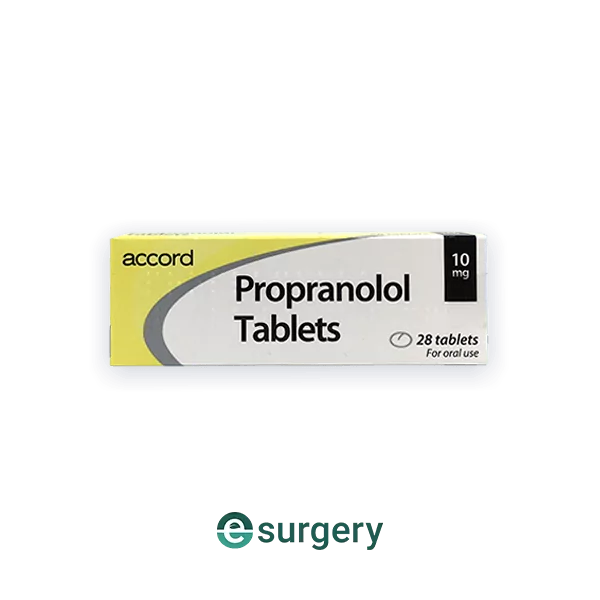
What is Propranolol?
Propranolol is one of the oldest beta-blocker drugs invented in the 1960s to treat high blood pressure, chest pain, and heart attack. It is also used to treat anxiety, migraines, tremors, irregular heartbeats, and certain types of seizures. In this article we will explore the uses of Propranolol, and how often can you take Propranolol.
Propranolol works by decreasing the activity of specific nerves in your body, which lowers your heart rate and blood pressure.
Propranolol is used to prevent damage to the heart caused by a sudden, severe narrowing of the arteries. It calms down the heartbeat and reduces blood pressure. This can also help with conditions such as anxiety and migraines. This article provides you with an overview of the uses and benefits of propranolol.
How Does Propranolol Work?
Propranolol is a beta-blocker, which means it blocks the action of adrenaline on certain parts of the body. It is used to treat high blood pressure, abnormal heart rhythms, and anxiety disorders. [1]
The drug works by blocking the effects of adrenaline in certain parts of the body. This has two main effects: it lowers blood pressure and slows down a person’s heart rate.

It is also used to reduce the physical symptoms of anxiety such as: shaking, trembling, and sweating. The medication reduces anxiety by stopping stress hormones from releasing into the bloodstream.
Propranolol Uses
Propranolol is a widely prescribed beta-blocker with various uses other than treating your anxiety problems. [2]
Below are some of the uses of Propranolol:
- Severe Anxiety
- Migraines (try our free migraine tracker)
- Tremors
- Effects of thyroid condition (hyperthyroidism)
- Certain behaviours after brain injuries
- PTSD (post-traumatic stress disorder)
- Irregular heartbeat (arrhythmia)
- Atrial fibrillation
- High blood pressure
Some musicians and performers use propranolol to treat on-stage anxiety.
In short, Propranolol is a common and versatile drug for treating and managing various conditions.
How Often Can You Take Propranolol and How Long Does It Last?
Propranolol is a largely prescribed beta-blocker, and its lasting effects depend on the amount of dosage intake.
Propranolol is generally effective for three to four hours and for most people, it provides around four hours of symptom relief.
So, it has to be ensured that the prescribed dosage is to be taken before the event or any other movement to observe effective results.
What is the Dosage of Propranolol?
The dosage of Propranolol depends on the medical condition and age of the patient that has to be treated. [3]
Here are the variations of Propranolol dosage depending on the age of the patient:
- For patients dealing with Hypertension, the typical required dosage will range from 80mg to 160mg twice a day, given the condition.
- For patients dealing with Anxiety, the usual dosage is 40mg, once a day.
- For Angina and Migraines, the dosage may start from 40mg, two to three times a day.
- For patients with High Blood Pressure, the usual dosage is 80mg, twice a day.
- For children under 12, the dosage has to be consulted with a paediatric doctor.
It’s important to talk to your doctor before starting any new medication.
Side Effects
Propranolol has some common and mild side effects like:
- Dizziness and nausea
- Dry eyes
- Cold fingers and toes
- Diarrhoea
- Weakness and tiredness
- Difficulty in sleeping
According to studies of the NHS, these common side effects could happen in 1 out of 100 people. [4]
How Does Anxiety Work?

When you feel anxious, your brain produces chemicals called adrenaline and noradrenaline. [5]
Anxiety is a feeling that can be experienced by anyone. It is an emotion that people have when they are in a situation where they feel threatened, insecure, or stressed.
These feelings can lead to physical symptoms such as increased heart rate and sweating.
The amygdala is the part of the brain that controls our emotions, like fear and anxiety. When it senses danger, it sends signals to other parts of the brain to prepare your body for fight or flight. This process can also cause physical symptoms such as raised blood pressure and increased heart rate.
Anxiety disorders are mental health conditions that involve persistent feelings of uncontrollable worry and fear despite reassurance from others.
People with these disorders may have difficulty sleeping and find it hard to concentrate on daily tasks because their thoughts are often focused on negative possibilities or uncontrollable worries.
Some Serious Allergic Reactions
In very rare cases, Propranolol can cause serious allergic reactions. If you experience any of the following please contact a medical professional as soon:
- A skin rash that causes itchy, red, or swollen skin.
- The feeling of tightness in chest or throat areas.
- Shortness of breath.
- Troubling while speaking.
- Swelling on mouths, lips, tongue, and throat.
Should you use Propranolol?
The bottom line is that Propranolol has proven to be an excellent beta-blocker that treats your situational anxiety and lasts for 4 to 5 hours without any serious side effects.
But it is always necessary to consult your doctor and self-monitor after taking any medicine and stay extra careful.
Sources
Further Reading
- Propranolol: medicine for heart problems, anxiety and migraine | NHS
- How Quickly Does Propranolol Work for Anxiety? | Addiction Group
- Propranolol | Beta Blocker For Anxiety | Young Minds








